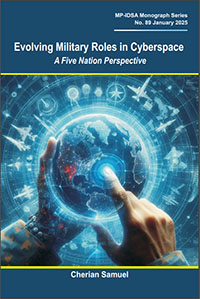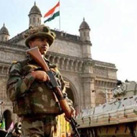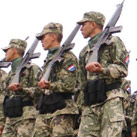Evolving Military Roles in Cyberspace: A Five Nation Perspective
This monograph explores the varying approaches of the United States, China, Russia, the United Kingdom, and Israel towards military engagements in cyberspace, detailing their initial strategies, underlying expectations, and the resultant outcomes. By examining these diverse national strategies, the study provides insightful analysis into the evolving perspectives and practices regarding military involvement in cyberspace across different states.
- Cherian Samuel
- January 22, 2025












